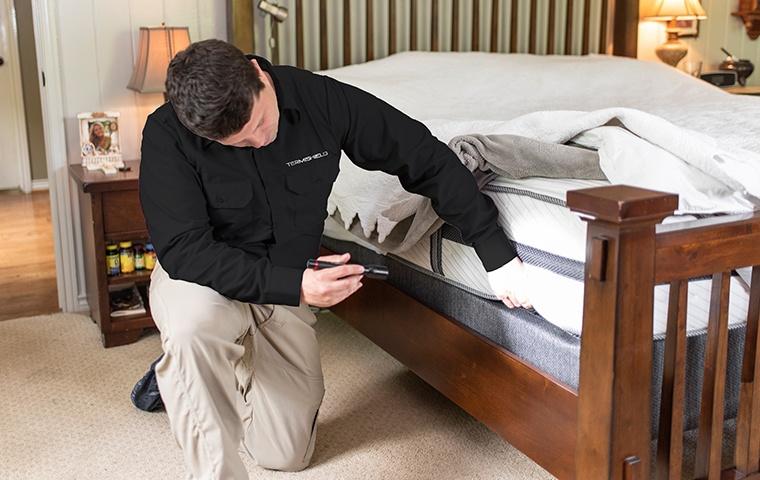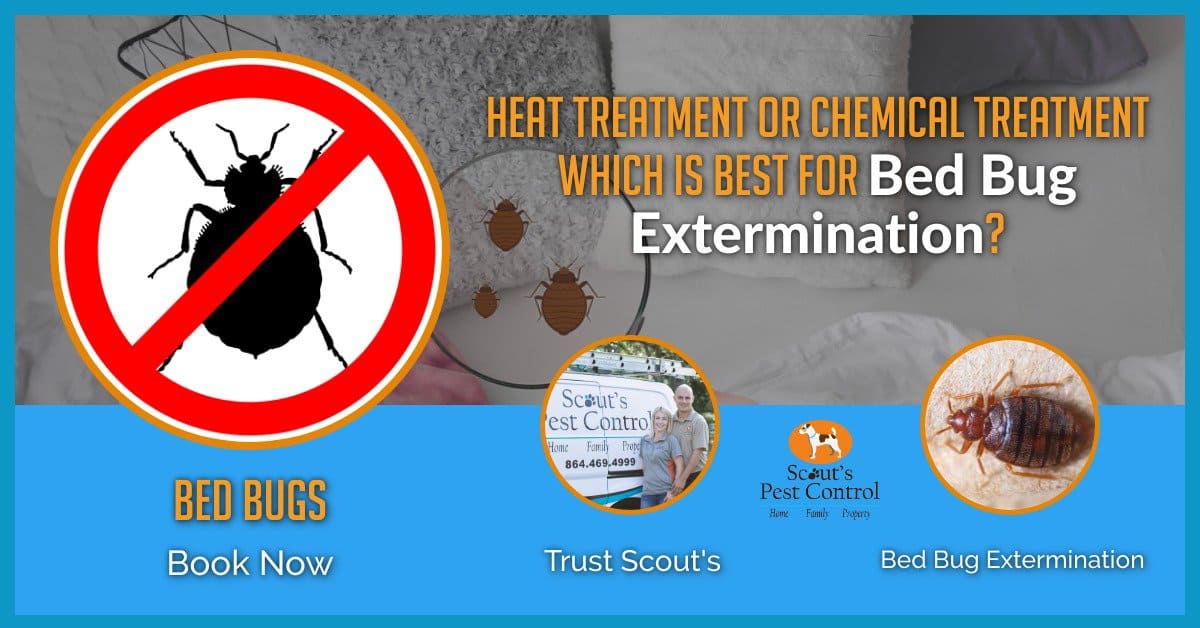Kings Pest Control Expert Cincinnati: Effective Pest Monitoring
Kings Pest Control Expert Cincinnati: Effective Pest Monitoring
Blog Article
Kinds Of Parasite Control: Which Approach Is Right for Your Infestation?
When faced with an insect problem, the selection of an ideal approach for bug control is crucial in efficiently taking care of the situation. From chemical treatments to organic solutions, there exists a variety of strategies that can be used to address various kinds of bugs. Each approach features its own set of considerations and advantages, making the decision-making process a nuanced one. Understanding the subtleties of each technique and examining their compatibility with the details parasite infestation at hand is crucial for accomplishing long-term success in pest management. By checking out the different sorts of bug control techniques readily available, people can make informed choices tailored to their one-of-a-kind situations, making certain an extra sustainable and reliable outcome in pest eradication.
Chemical Pest Control
Chemical parasite control entails making use of artificial or normally obtained chemicals to manage and get rid of pest populaces effectively. This technique is commonly used in agriculture, forestry, and property setups to combat a vast range of parasites, including bugs, rats, and weeds. Using chemical pesticides can give fast and targeted options to pest problems, making it a preferred option for many individuals and organizations.
Among the vital benefits of chemical insect control is its capacity to promptly remove parasites, lowering the threat of damages to crops, residential property, and human health and wellness. By using specific chemicals that target particular bugs, this approach can successfully manage invasions while minimizing injury to helpful organisms and the atmosphere when used properly.
Nonetheless, the use of chemical parasite control also elevates concerns concerning potential negative impacts on non-target species, water sources, and human wellness. It is important to follow safety and security standards, apply chemicals sensibly, and take into consideration different insect control methods to reduce these risks and make certain lasting pest management methods.
Organic Parasite Control
Biological parasite control, also referred to as biocontrol, uses living organisms to manage and lower pest populations naturally. This approach harnesses the power of nature to regulate insects without the demand for synthetic chemicals. Biocontrol can involve the intro of all-natural adversaries of the insect types, such as parasites, predators, or virus, to subdue parasite populations. By utilizing the pest's all-natural predators or virus, organic insect control uses a environmentally pleasant and lasting solution to pest monitoring.

Mechanical Pest Control
Utilizing physical and hands-on approaches to take care of bug populations, mechanical parasite control provides a different method that does not depend on using living organisms or artificial chemicals. This technique involves using barriers, traps, or other gadgets to literally hinder or eliminate pests. By blocking insect entrance points or setting up catches to capture them, mechanical bug control can effectively lower problems without presenting chemicals into the atmosphere.
One common example of mechanical insect control is using mesh displays on doors and windows to avoid bugs from getting in buildings. This easy yet effective technique acts as a physical obstacle, keeping insects out while enabling proper air flow. Additionally, tools like mousetraps, fly swatters, and ultrasonic repellents fall under the mechanical bug control category.
While mechanical bug control methods can be labor-intensive and require normal tracking and maintenance, they provide a eco friendly and sustainable solution for handling bug invasions. By integrating different mechanical strategies, homeowner can create a detailed parasite control method that minimizes reliance on chemical pesticides.
Physical Pest Control

Some typical physical parasite control approaches include the usage of barriers such as nets or screens to avoid bug access, catches to catch and get rid of parasites, and hand-picking to literally eliminate bugs from plants or frameworks. In addition, techniques like warmth treatments can be utilized to control insects like bed bugs by increasing the temperature level to levels that are dangerous to the bugs.
Physical bug control is specifically helpful in integrated parasite management (IPM) techniques, where numerous parasite control methods are incorporated for efficient parasite management while decreasing the use of chemicals. By making use of physical parasite control strategies, individuals can successfully attend to bug infestations with very little ecological impact.
Integrated Insect Monitoring
When implementing physical bug control methods as component of insect monitoring strategies, Integrated Bug Management (IPM) becomes a comprehensive strategy that leverages numerous strategies to successfully regulate pest populaces. IPM concentrates on lasting prevention of parasites with a mix of organic, social, physical, and chemical tools customized to certain pest issues. By incorporating multiple control methods, IPM intends to decrease the threats related to insects while also minimizing dependence on chemical remedies.
One key facet of IPM is the focus on monitoring and evaluating pest populaces to figure out the most proper control methods. This proactive approach allows for early intervention visit this site right here and targeted methods, leading to more reliable insect administration. In addition, IPM promotes eco pleasant techniques by prioritizing non-chemical control methods and just making use of pesticides as a last option.
Conclusion

By making use of the bug's natural predators or virus, biological pest control supplies a sustainable and environmentally pleasant solution to pest management. - Kings cincinnati pest control
Utilizing hands-on and physical techniques to manage pest populaces, mechanical insect control offers an alternate approach that does not count on the usage of living organisms or artificial chemicals.A reliable technique to managing insect populations without depending on chemical or biological approaches entails the use of physical insect control techniques.When implementing physical bug control techniques as component of parasite management techniques, Integrated Bug Management (IPM) arises as a thorough method that leverages various check these guys out strategies to effectively control pest populaces. Chemical parasite control includes the use of chemicals, organic bug control uses natural predators, mechanical parasite control involves physical obstacles, physical pest control consists of trapping or removing pests, and incorporated bug monitoring incorporates multiple approaches for an all natural approach to pest control.
Report this page